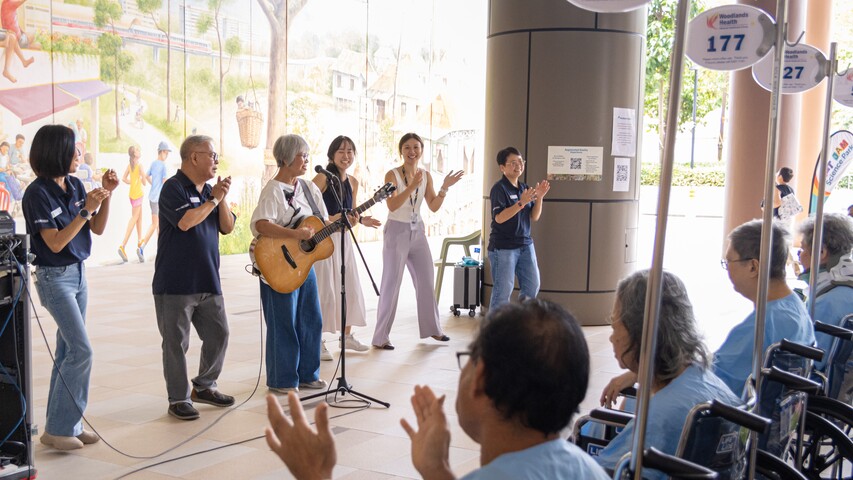Huge milestones are usually expected to be spread over the course of an artist's career. But for Shye, four of them happened within the first seven months of this year.
In what has been a pivotal 2023 for her so far, the 21-year-old has made a trip to the SXSW Music Festival in Texas in March, where she represented Singapore at its all-Asian Tiger Den showcase, finished a 129-day stint on Hunan Satellite TV and Mango TV's Chinese reality competition 青年π计划 (Youth π Plan) as a finalist, and supported indie band Men I Trust and R&B star Daniel Caesar at their Singapore concerts.
As I prepared for my first meeting with the singer-songwriter and producer, who has come a very long way since clinching the top prize at the 2018 edition of Vans Musicians Wanted, a part of me was expecting to meet a larger-than-life wunderkind. But on the day of the interview, the Shye that greeted me could not have been further from the one I had expected.
Shy and unassuming, she walked into the restaurant we had agreed to meet at with her mother and manager, Alice. Once we had introduced ourselves to each other, she quietly prepared herself and waited for the interview to begin.
As soon as we began chatting about her eventful year, her eyes lit up and there was a noticeable surge of excitement in her voice.
"This year has felt like a dream," she said, referencing a line from her song 'NOTGONNALIE'.
Not even once did Shye display a hint of boastfulness as she looked back on her achievements in 2023. Instead, the 'love you' singer seemed more interested in reflecting on the lessons she had learnt during her experiences and working to become a better version of herself.
"I've just been very lucky and fortunate to have been given the platforms to be able to express myself", shared Shye, who was also featured on the Forbes 30 Under 30 Asia 2023 list.
Here's what Hear65 learnt about Shye's year so far during a catch-up session with the homegrown pop artist a week after her opening performance at Daniel Caesar's Singapore show.
Representing Singapore at SXSW's Tiger Den

Credit: Deanie Chen for Jaded
Let’s start with your performance at SXSW’s Tiger Den in March. What were some emotions that you experienced in the lead-up to the event given how renowned SXSW is?
I was very excited, but obviously very nervous also because I wasn't playing in Singapore; I was playing on the completely other side of the world and alongside such amazing acts that I listen to. So it was very exciting but also very nerve-racking when we landed because the flight there was very long. Obviously, [I] didn't get enough sleep, but I was just being powered by the adrenaline of feeling like, "Oh my gosh, I listen to this person and being able to watch them and also play my own set with my two friends." I was actually a bit scared that I would not be able to because I really wanted my guitarist and my drummer to come with me, but I wasn't sure if I would be able to pay for their flight and everything. But thankfully, I was able to [do so] out of my own pocket. It was painful, but it's okay. We had a lot of fun. We didn't get much time to really look around and attend the whole festival because I had to be back. We were only there for like 48 hours, I think, because I had to be back for the show in China straightaway.

Credit: Deanie Chen for Jaded
You were featured on a lineup that included other exciting Asian acts such as LØREN, Balming Tiger, Ena Mori, and Lunadira. What was it like being up on stage as a representative of Singapore?
Obviously, I felt very honoured, but I get nervous very easily so it was a bit like, "Oh, no, if I don't do well, then people [will] think Singapore music is not good. But no, if I don't do well, it's okay. There are a lot of other good bands." But I was very thankful for the opportunity. And I think the fact that the whole lineup was [made up of] Asian artists was really amazing because within Asia itself, there are so many different countries and so many different kinds of music. So it was very nice to see all [of them] come together.
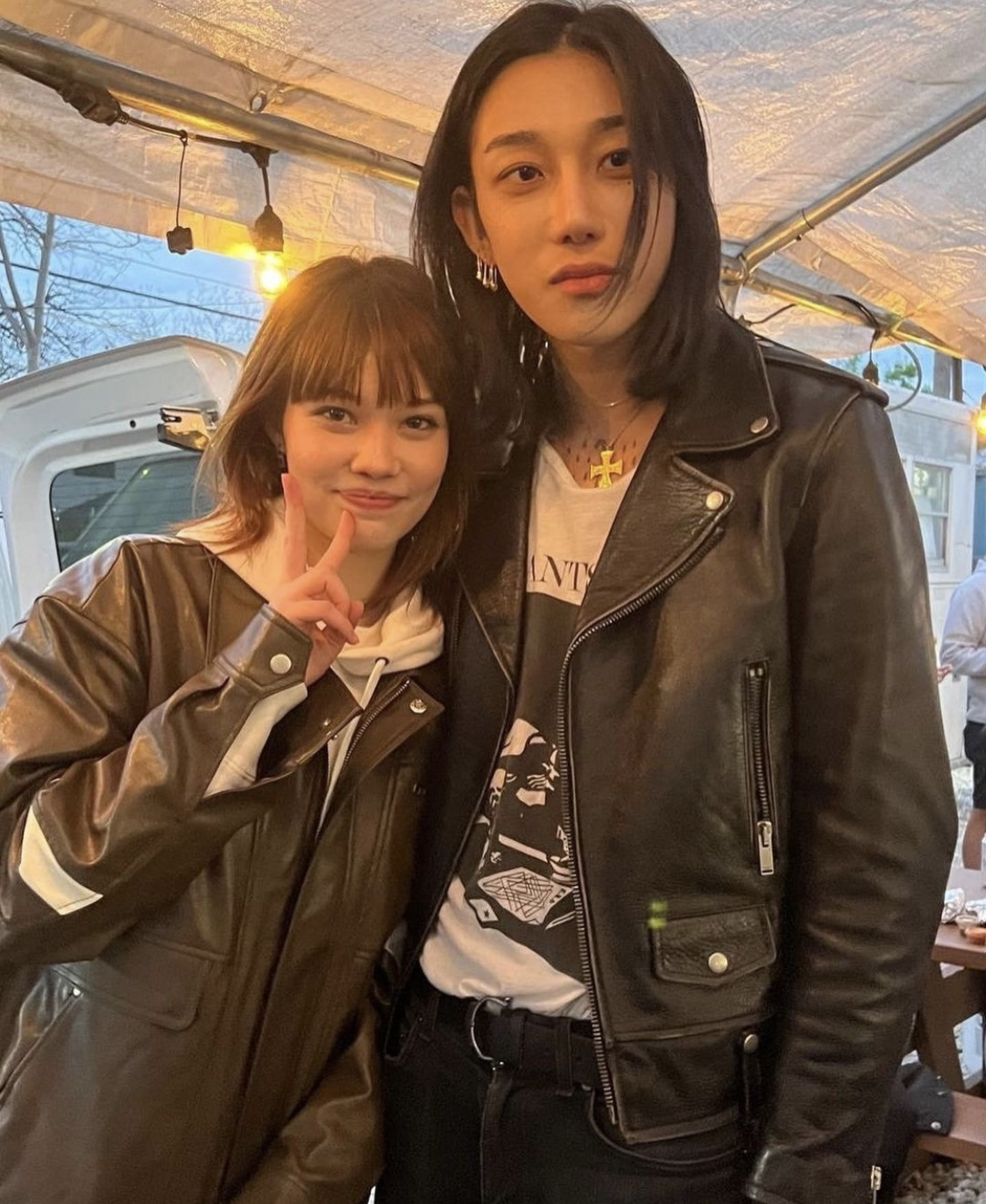
Credit: Alice
"I think any festival is a very great opportunity for me to learn, so I'm more than happy to be able to play [at it]."
Now that you’ve performed on the Tiger Den stage, what are some dream festivals you would like to perform at?
Honestly, I don't really have [go], "Oh, I must specifically play this festival." I think any festival is a very great opportunity for me to learn, so I'm more than happy to be able to play [at it]. Just being able to be given that opportunity is really very good, so I'm not going to be picky and be like, "No, this festival I don't want to play [at], you know?"
Competing on China's 青年π计划 (Youth π Plan)
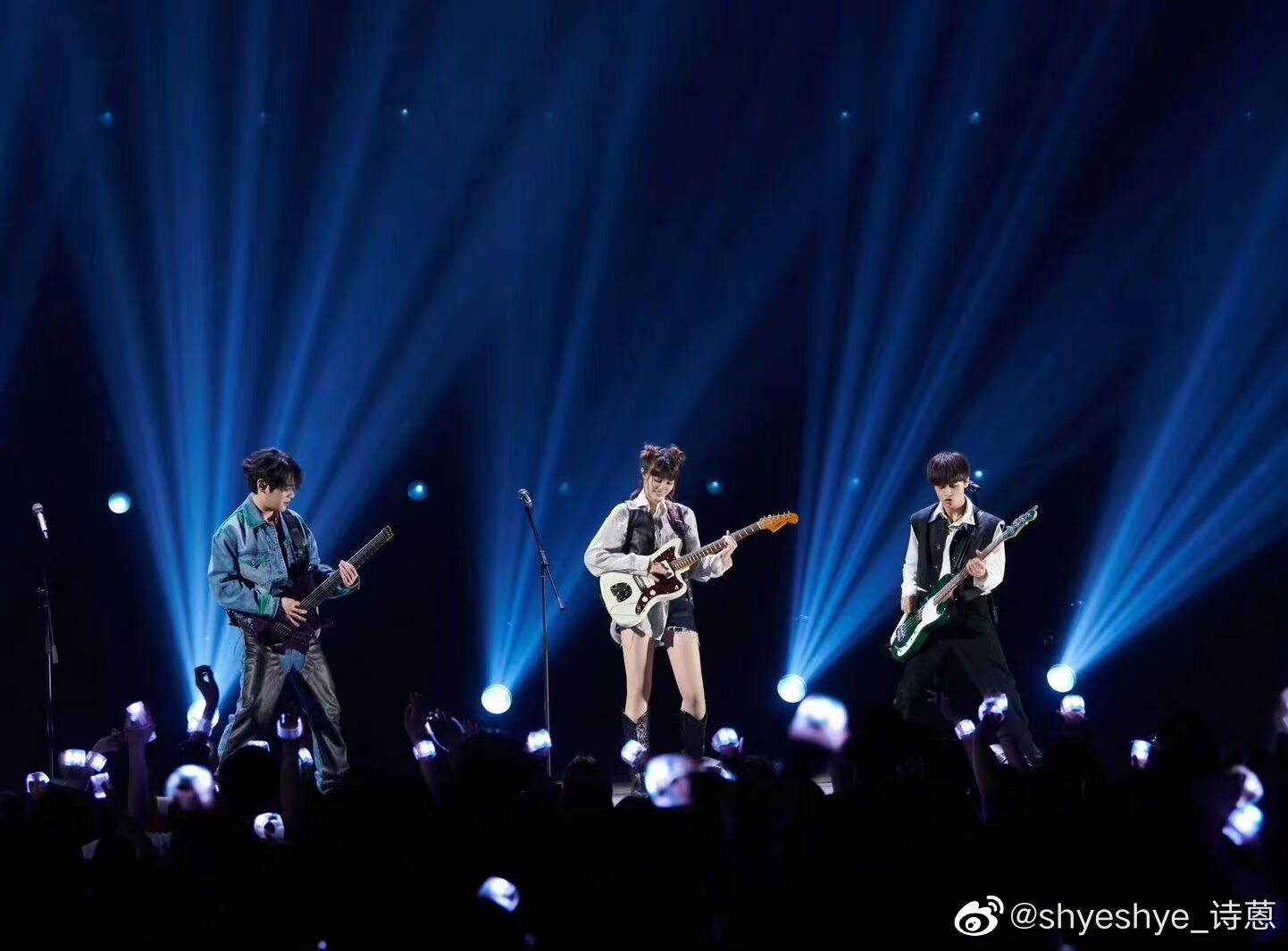
I’m really curious to know how you ended up as a contestant on China’s 青年π计划 (Youth π Plan). Could you tell us the story behind that?
Honestly, up till now, I still don't know how exactly they found me, but they did. I remember I was about to go on a holiday with my mom to Korea. I have a Telegram group chat for my supporters, and then there was a message that went, "How do we contact Shye?" Apparently, they had downloaded the app. There were a few of them who were very nice [and replied], "Oh, you can email this [address]." [I was like,] "Wow, so sweet! They helped the person."
They private messaged me instead and I gave my mum’s contact to them. I remember we were out shopping before the trip when the person called. I had forgotten to mention it to my mum so she hesitated to pick up the call. After she hung up, we were like, “Eh, real or not? Is this legit?" Because it was so out of the blue. I didn't know how they found me, but they did.
Then one thing led to another and I had to download WeChat and work out how to use WeChat. We also had to work out how to translate all the messages that they sent because our Chinese wasn't good. Initially, I turned it down as the time was too tight because I played Tiger Den on the 15th and they needed me in China on the 18th, which was a bit hard because of the flights and everything. There was no straight flight from the US to Changsha. They didn't give up though. They kept saying, "Come, come." Initially, I was meant to go a week earlier, but obviously, I couldn't make it because of the festival. Then they [said,] "Okay, you come on the 18th." So from the US... I flew from Austin to Houston. Then from Houston to San Francisco. And then [from] San Francisco to Singapore for a three-hour stopover. After that, I flew from Singapore to Beijing, and then from Beijing to Changsha. The entire journey took about 35 hours in total.
I had just been on the plane, in transit, and everything for 35 hours. As soon as I landed, it was about 11 AM in Changsha and I had no time to sleep [or] anything. Immediately they picked me up from the airport and I had to go for like fittings, photoshoots, [and] rehearsals. And then the very next day was the first round already. When I landed, I was in a daze. Then on top of that was the language [as well], like not being able to understand what's going on. Everything was so new because I’m not used to people tending to my every need, from my make-up and wardrobe and also to being escorted and to all the cameras. So [it was a] very new environment, which I had to adjust to almost like immediately and be like, "Okay, this is the norm now."

"Everything was so new because I'm not used to having people do my makeup or having people bring me clothes to do fittings and stuff like this."
There’s so much that we do not get to see in the final cuts of reality competitions. Having to converse in Mandarin was one of them, but during your time in the competition, what were some other challenges that you had to overcome that viewers may not have known about?
Yeah, the Mandarin and also for each round, we had to pick what songs we wanted to do. I would have loved it if I could have done my own song every single round, but because of the language and because I'm not known there, [it would have been] harder for the audience to connect [with them]. I had to end up doing quite a number of Chinese songs and also more popular English songs. But picking the songs was so hard because what is popular in Singapore may not be popular there, and I don't really know that many Chinese singers. We only know the big names, but there, they know... [I] don't how many more. My mum and I had to crack our heads every time. [The discussion for] every round was like, "Oh my gosh. What are we going to sing next? What are we going to do next?" And then you had to send a list to them. They needed to get the rights to that song, so you might not be able to do that song and you would have to pick something else. So that was a headache. Sometimes it got to a point where I [would go], "Just let me go home."
I was thrilled when I was finally able to perform my own song 'Welcome Back' for the semi-finals stage, and it had its choreography to it too!
Another thing [was that] this whole experience was very new. I like K-pop, so I do watch their content — their variety shows. So [I felt], "Oh my gosh, this is actually how they do it when the cameras are everywhere." And I think getting used to having to make sure you're not doing something stupid all the time because I have a tendency to zone out or stone. There were times when I had to catch myself, if not, I would have sat there [with my] mouth hanging open. But after a while, I think I got a bit more comfortable with that. I'm also a bit more shy in front of the camera, so that was another thing I had to learn [to overcome]. But for the rest of the contestants on the show, I think they would have been a bit more familiar with this kind of environment because they do have more shows like that in China. Whereas for me it was like, 'Where did this girl come from? She doesn't know anything."
The last thing is whenever the new episode came out, it was so intense. It was so scary. I also got very nervous, but I think everyone was very chill. In person, we were all very supportive of one another. But of course, I mean it's a TV show, and it's very entertaining to watch us look like we are fighting one another.
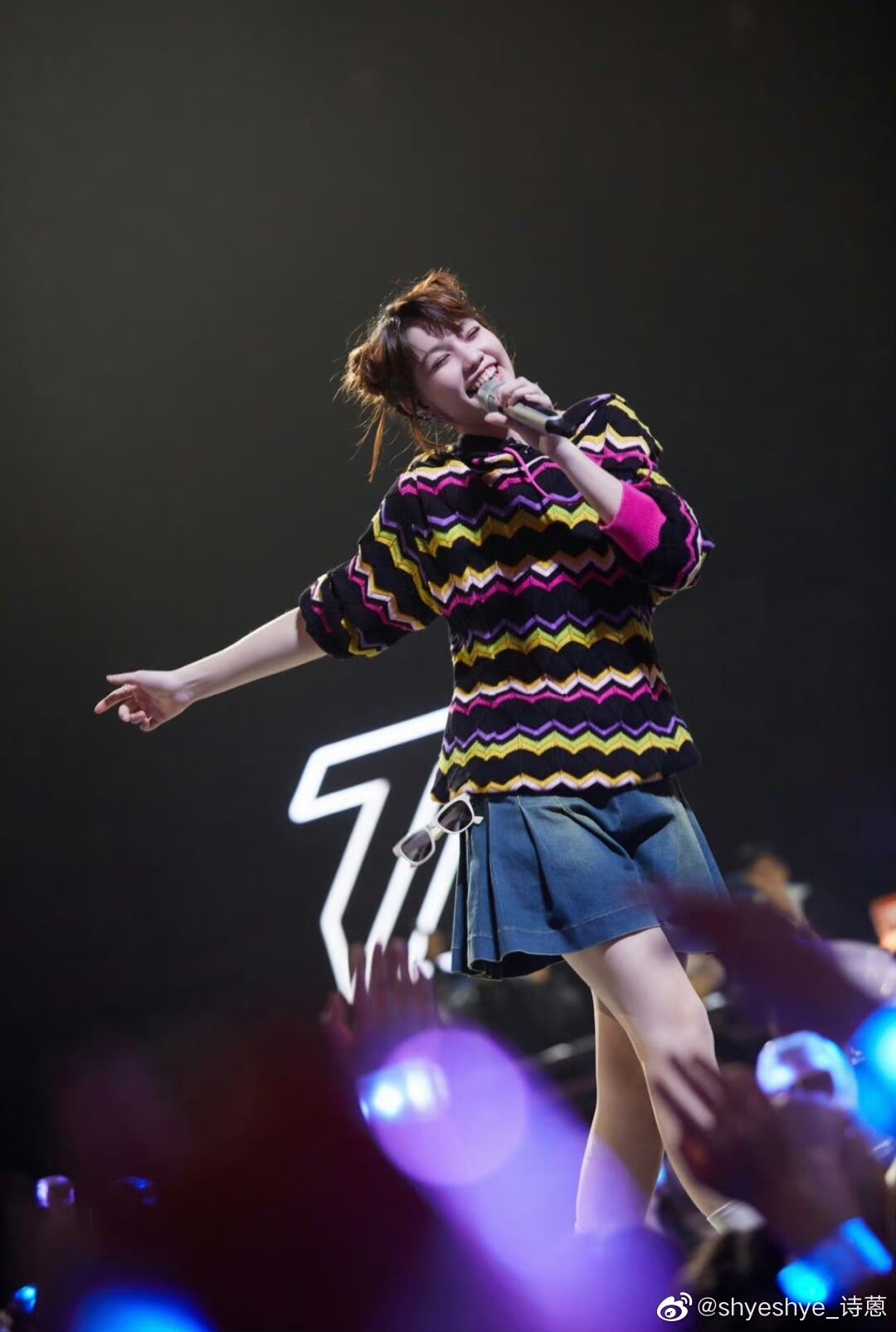
"I like K-pop, so I do watch their content — their variety shows. So [I felt], 'Oh my gosh, this is actually how they do it when the cameras are everywhere.'"
Considering you’re a self-taught musician, what was the experience of being mentored by famed artists such as Vanness Wu, Elkie Chong, and Yan An like?
It was very unreal because Elkie is obviously [formerly from] CLC and Yan An is from Pentagon. These are K-pop groups that I am familiar with and I listen to, so seeing them in person was quite... I thought they were not real. When you see someone behind the screen and then you see them in person, it is quite unreal. It was also such an honour to share the stage with Yan An and be joined by Vanness Wu for the finals.
I worked with Yan An the most; we had three rounds together. I would say he's very quiet. I think he's a bit like me [in that] we're a bit more reserved and quiet. But the advice that he gave me, he didn't necessarily say it, but from working with him for three rounds, I realised that every single time there was a break, he was always in one corner practising still. That kind of commitment and the hard work that you can see someone put in because they're very passionate about what they do is very inspiring to me. That's what I have learnt from him. It wasn't necessarily him telling me, "Oh, you need to do this." It was just from seeing him almost every day to being on stage with him. I think I've been able to learn a lot. I'm not necessarily saying I'm going to sing and dance on stage now, but I think the determination and the discipline can really help me in my own work.

Supporting Men I Trust and Daniel Caesar
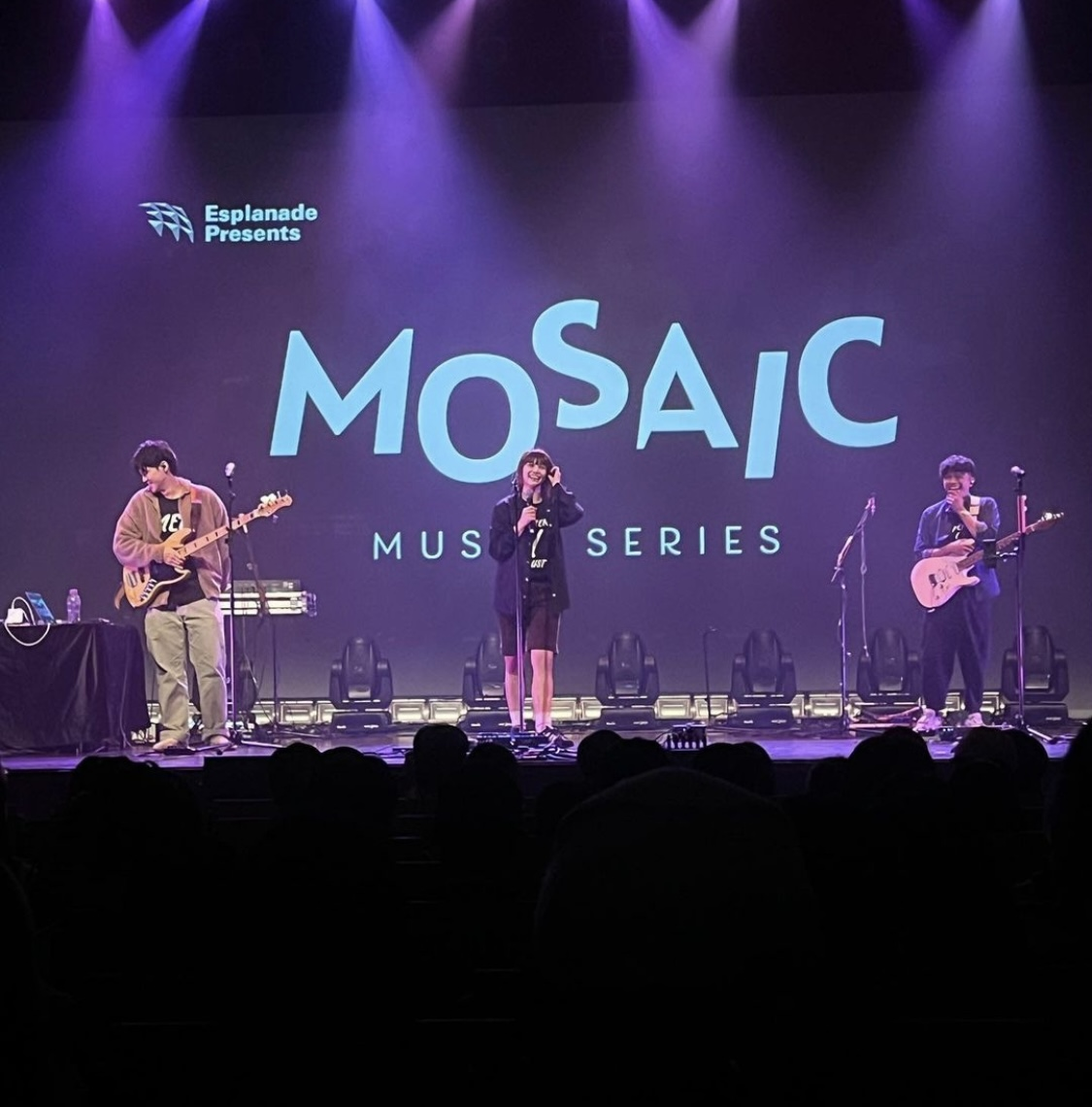
You’ve also supported Men I Trust and Daniel Caesar at their Singapore shows this year. How much did the invitations to open for these two artists mean to you?
It was a very big deal for me because being able to see people you're inspired by at a concert is already very exciting. But to be able to open for them is even more so. But it's also very, very scary. You want to make sure you make them not regret saying okay to you opening for them. It's also because... The Men I Trust venue was the Esplanade Theatre. I actually thought it was the Esplanade Concert Hall. So I [thought], "Okay, Esplanade Concert Hall. I've attended gigs there. When Linying had her show there, she invited me to sing 'The Road Ahead' with her. Okay, I know that venue." The day before, I went to [look at] the poster again. I went, "Eh? Esplanade Theatre is not Esplanade Concert Hall?" So I Googled it and [my reaction was], "Oh, wow, it is even bigger. Oh my gosh, this is so big." But it was fun because I had my two friends with me. It made me a bit less nervous. Obviously, I really love Men I Trust, so I was very scared but very thankful that I had that opportunity.
Any time you open for someone, you never really know how the audience is gonna react. Obviously, they're not there for you. That's the number one thing. So whether they are welcoming, supportive, you know, stuff like that, that is what is very nerve-racking because people can be mean, but people can also be very nice. So you never really know. So far, thankfully, I've been quite pleasantly surprised with the way that they reacted when I went on stage. Then for Daniel Caesar, the venue was The Star Theatre, so that was even bigger. I was extremely nervous about [it] because Tim (drummer) and Rin (guitarist) weren't with me. And it was my first time doing a solo set in a very long time, especially at such a big venue and opening for such a popular act. I've learnt a lot and I'm just very, very, very thankful for the opportunities.

"It was a very big deal for me because being able to see people you're inspired by at a concert is already very exciting. But to be able to open for them is even more so."
How important do you think giving local musicians such platforms to perform on is?
I think it's a very good opportunity to expose the music to a more mainstream [audience] in that sense, because we do have a lot of opportunities to play like the smaller shows, but not necessarily everybody knows about the local bands here and will come and watch [them]. I feel that by being able to have a local act support and open for a more global act, you sort of bring in new people. Especially after the Daniel Caesar show, I did ask a few [of the concert-goers], "Do you know any local acts?" And they said, "No, I don't listen to Singapore music." That was [when I realised], "Ah, okay. So this still is happening."
I think it's very good [to have local acts open for global acts] because it's not about who opens; it is about the fact that there is someone opening from Singapore, which means that the people who come and watch will go, 'Oh, Singapore has music." Then they can not only listen to the act, but also go and listen to the other local bands in Singapore. Hopefully, then we [can] lift up the other bands and artists here as well. It's also a good way for the Singaporean acts to connect with the more international acts. We don't have many festivals here in Singapore, so [there are] not many opportunities to meet and connect with international artists.
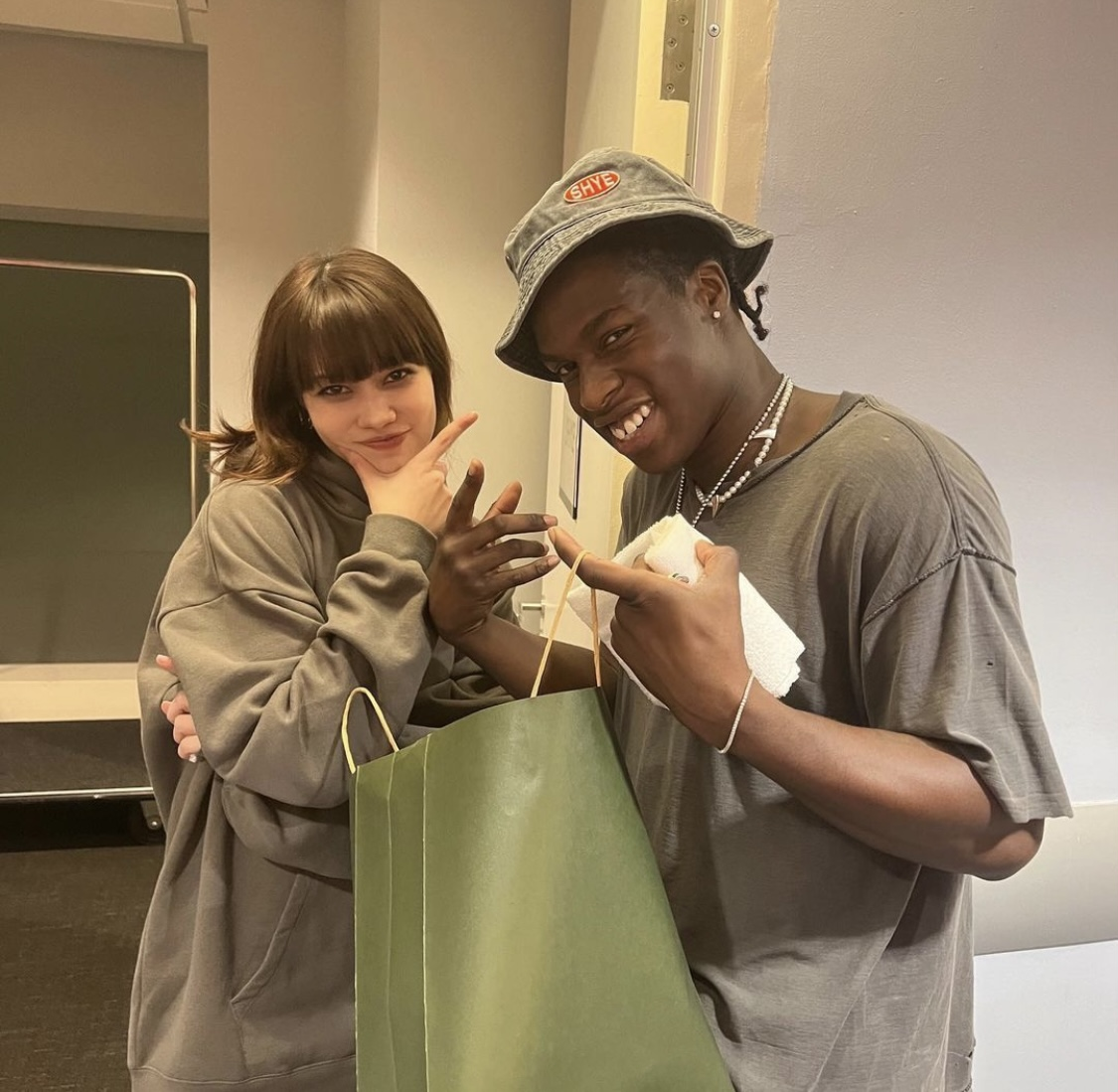
"I think it's very good [to have local acts open for global acts] because it's not about who opens; it is about the fact that there is someone opening from Singapore, which means that the people who come and watch will go, 'Oh, Singapore has music.'"
What the future holds for Shye

How do you think your experiences in 2023 have helped you to grow both personally and in your career as a musician?
I honestly don't really remember what happened before I went to China because [for] the past four months, I've had no time to do anything else except be on the show and prepare for the stages and stuff like that. But I would say definitely from when I first went to now, I think I have found a new confidence in myself and who I am. Even though on the show, I [didn't go], "This is my song. This is my song," on every stage, I feel that because I couldn't do my own music, it challenged me to find different ways that I could present myself to this new audience. For a lot of the rounds, I had to think about, "Okay, I can't do my own music. How else can I show that it is Shye?" There were some rounds where I wrote a new English verse or a new guitar solo part. Being restricted sort of made me open up a bit more in other areas.
I've really stepped out of my comfort zone, especially with the Mandarin part. I'm generally a more... I'm not the kind of person to first go and make friends with people, so being on the show was very scary also because I was surrounded by so many new people. Having to interact with them in a language that I don't really use made me have to slowly become a bit more confident in myself and not be so scared all the time of everything and everyone. Now, whatever I've learnt on the show, I can apply to my own daily life, my own music, and also me as a person. I think I have grown a lot this year in a way that I wouldn't have expected because I never would have expected to be on a show like that. But I think it was really a blessing to have been able to have that opportunity.
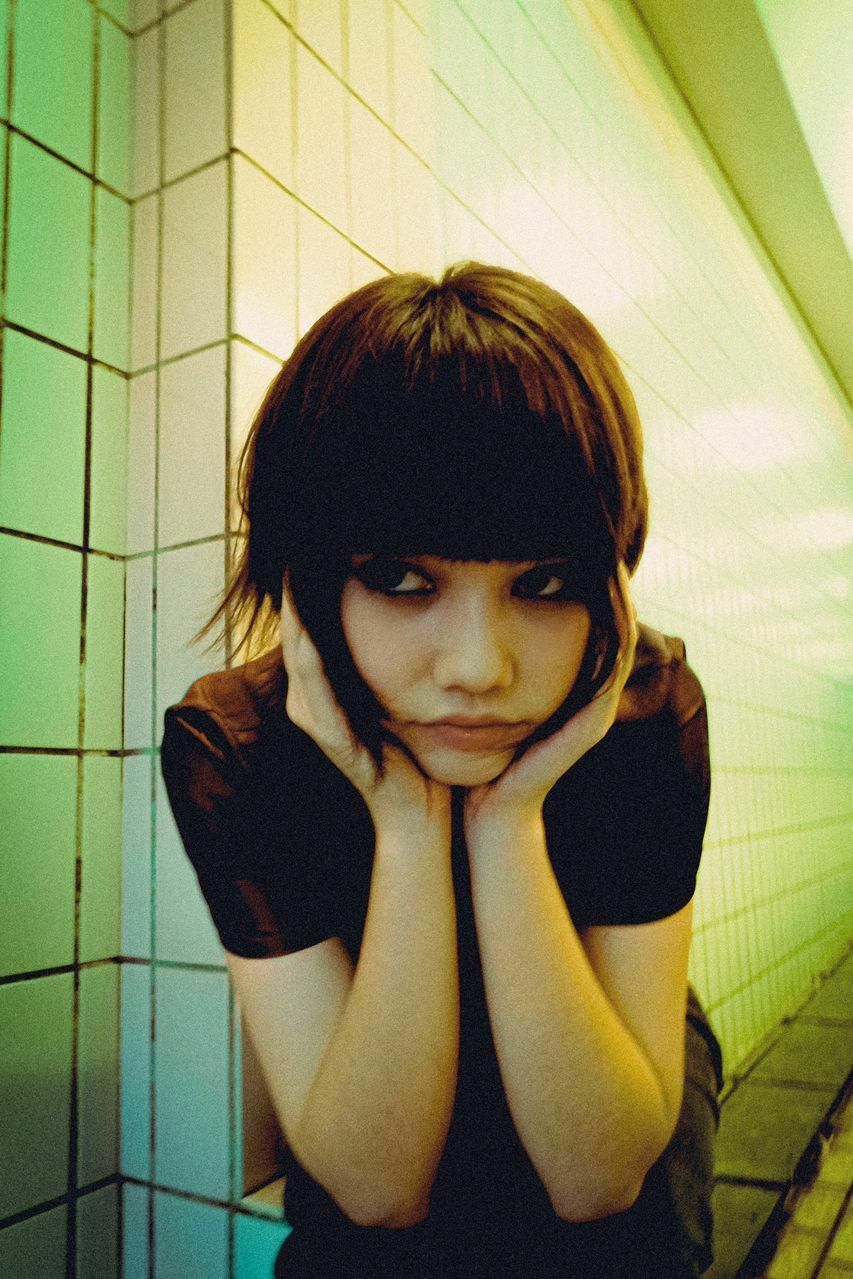
"I've learnt to not chase after things that may not necessarily belong to me because I feel that what is meant to happen will happen for you, so just trust the process."
And lastly, what’s next for Shye?
Now I have more time to work on new music, obviously, because during the show I really had no time. What's next? I don't know also because I feel that a lot of things that have happened to me have been very unexpected. But I think that's the beauty of it. I've learnt to not chase after things that may not necessarily belong to me because I feel that what is meant to happen will happen for you, so just trust the process. I've just been very lucky and fortunate to have been given the platforms to be able to express myself. The one thing I can say is there's a new EP. Other than that, we will find out together!
This interview has been edited for clarity.

